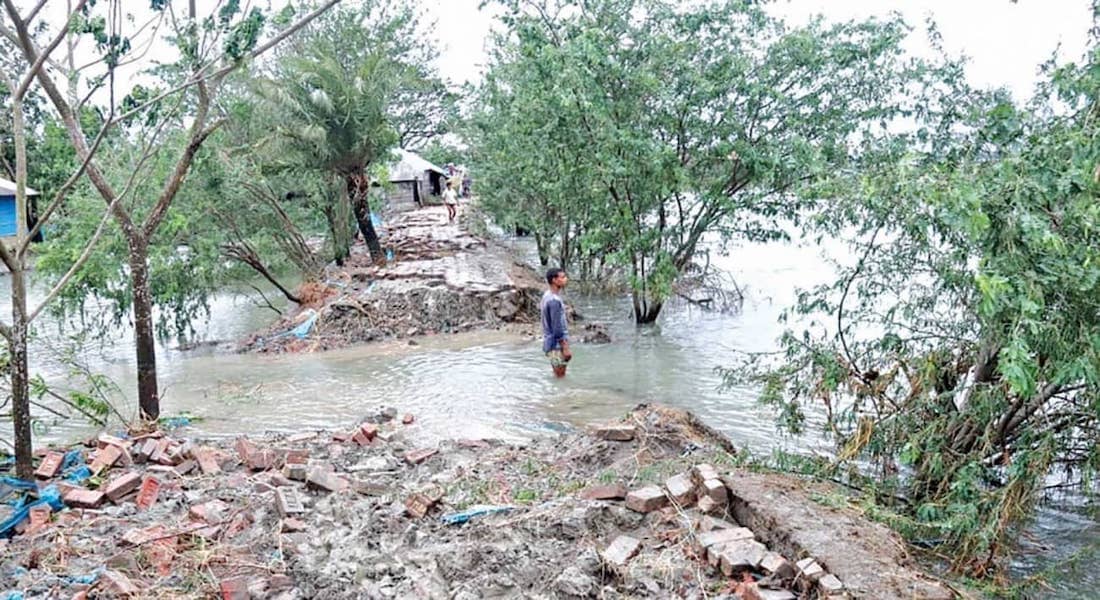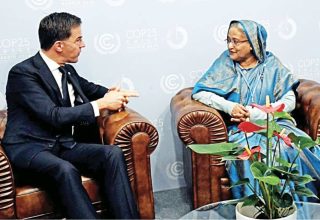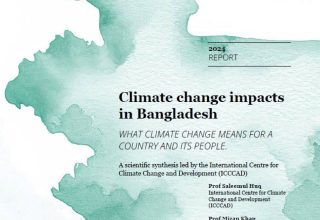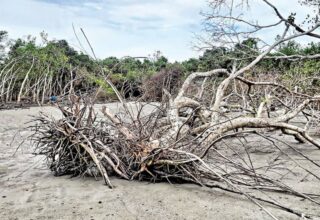
The Intergovernmental Panel on Climate Change (IPCC), a global body under the United Nations (UN), has been conducting periodic reviews (every six or seven years) of the state of scientific knowledge on climate change for the last 30 years. The agency is currently in the process of publishing its Sixth Assessment Report (AR6) in three parts. The first part was published in August 2021 by Working Group 1 (WG1) based on scientific modelling by physical sciences. The first part of AR6 made the unequivocal claim, for the first time in three decades, that the impacts of human-induced climate change are now evident due to the global temperature rise of over one degree Celsius due to greenhouse gas (GHG) emissions since the First Industrial Revolution. This was the first time that such scientific attribution could be made.
The second part of AR6, prepared by Working Group 2 (WG2) and on vulnerability, impacts and adaptation, was just published this week, and it has reinforced the message that climate impacts are clearly visible everywhere in the world.
Having had the opportunity of being a lead author of the IPCC’s AR3, AR4 and AR5 in the past, I can provide some context on what the IPCC reports do (and don’t), and what the AR6 means for Bangladesh as well as the world.
Firstly, the IPCC has grown to become the biggest global collaborative scientific enterprise in the world, with several thousands of scientists from all countries, representing many different disciplines and assessing tens of thousands of scientific papers in different languages from around the world. However, there are two main limitations that must be kept in mind. The IPCC doesn’t do any new research, but only assesses existing peer-reviewed scientific publications. And its reports must be policy-relevant, but not policy-prescriptive. In other words, the scientists provide options for policymakers—the decisions are left to the policymakers.
Each cycle of the IPCC produces a number of reports that include the reports by WG1 on science, WG2 on vulnerability, impacts and adaptation and WG3 on actions to tackle climate change, and finally the synthesis report by all three working groups. The remaining reports of the AR6 cycle will be published before the 27th UN Climate Change Conference (COP27), scheduled for November this year in Egypt.
Secondly, in addition to these regular reports, the IPCC sometimes commissions special reports on specific issues as well. The climate-vulnerable developing countries pushed for such a special report in the last cycle on capping the temperature rise to 1.5 degrees Celsius, which proved to be significant in getting this target included in the Paris Agreement during COP21 in 2015.
One of the most significant results of the WG2 report is the fact that the impacts of human-induced climate change are occurring in all countries, poor as well as rich, and that all countries must now focus on enhanced adaptations in a whole-of-society manner.
It also points out the fact that the most negative impacts are already occurring, and will continue to occur, in the poorest countries who have the least capacity to tackle the said impacts. UN Secretary-General Antonio Guterres, in his remarks on the publication of the WG2 report, emphasised the need for the rich countries to step up and contribute to the funds to help poorer countries adapt to these adverse impacts.
At the same time, there is also a need for focusing on the consequences of climate impacts, namely the losses and damages associated with those impacts. However, one reason that the AR6 doesn’t have a great deal of analysis of loss and damage is the lack of solid research on this topic until now.
Finally, every IPCC report has serious implications for global decisions, especially at climate summit that follow the report’s publication, as we saw happening at COP26 in November 2021, where the Glasgow Climate Pact included a recognition of the results of the WG1 report. It is expected that the results of WG2 report will also receive similar recognition at COP27, especially the need to ramp up investment in adaptation as well as start funding for loss and damage, which COP26 failed to achieve.
As far as Bangladesh is concerned, there is some recognition of our success in adaptation to climate change at both local and national levels. We will need to step up our investment in both adaptation and addressing loss and damage going forward, so that Bangladesh can remain a global leader in tackling climate change.
Originally this article was published on Wednesday March 2, 2022 at Daily Star. The author Prof. Saleemul Huq is the director of the International Centre for Climate Change and Development (ICCCAD) at the Independent University, Bangladesh (IUB).
Email: saleemul.huq@icccad.org






